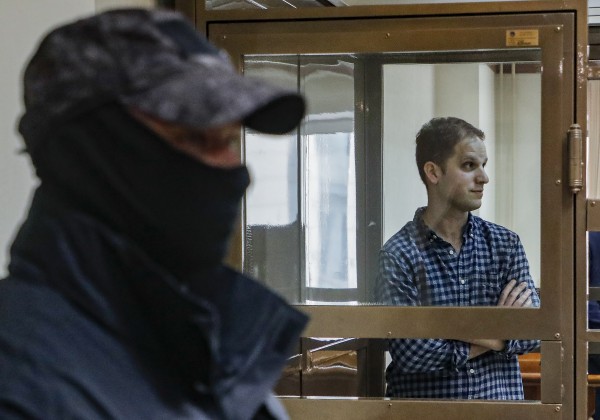The International Press Institute (IPI) on Wednesday renewed its call for the release of jailed Azerbaijani journalist Eynulla Fatullayev on the fourth anniversary of his imprisonment.
IPI also condemned Azerbaijani authorities’ deportation of three Swedish journalists who were arrested Sunday while trying to observe an opposition rally. The detention and expulsion came amidst growing reports of government harassment of journalists covering opposition demonstrations.
IPI’s Press Freedom & Communications Manager Anthony Mills said: “The European Court of Human Rights has made it clear that it believes that Mr. Fatullayev should be released. Instead, he continues to languish behind bars. We urge the Azerbaijani authorities to, instead of deporting Swedish journalists, allow Azerbaijani journalists to go about their work without threat of arrest and imprisonment.”
Fatullayev, the founder and editor-in-chief of the newspapers Gündəlik Azərbaycan, and Realny Azerbaijan, is currently imprisoned on a charge of possessing heroin.
He was first incarcerated in 2007 on a charge of criminal defamation for an article he wrote in 2005, and later charged with threatening terrorism over a March 2007 article. Found guilty, he was sentenced to eight-and-a-half years in prison.
Following Fatullayev’s appeal to the European Court of Human Rights, authorities in December 2009 said they found heroin in his cell, and he was sentenced to an additional two and a half years in prison.
Many believe the drug charge to have been fabricated to prevent his release in the event that the court in Strasbourg found his rights had been violated.
The court did so by a 6-1 vote last spring, ruling that authorities violated Fatullayev’s rights to freedom of expression, a fair trial and the presumption of innocence. The court rejected Azerbaijan’s appeal in October, but Azerbaijani authorities have yet to comply with the court’s order to release the journalist.
An appeals court in Baku rejected Fatullayev’s appeal of his drug conviction in February.
Fatullayev that month sent a letter to Azerbaijan’s justice minister complaining that he is being housed in the same prison with criminals he investigated as a journalist, and asking to be transferred to a prison where former court and law-enforcement authorities are held.
Earlier this month, he issued an open letter accusing the ruling establishment of carrying out an illegal vendetta against him. His family was also targeted this month by death threats in a telephone call in which the caller claimed Fatullayev had already been killed.
Mills and IPI Director Alison Bethel McKenzie travelled to Azerbaijan in February to hold talks with the IPI Azerbaijan National Committee, media representatives and the government about strengthening press freedom and to press the government to free Fatullayev.
In March, nine of IPI’s World Press Freedom Heroes honoured for their courage and resilience in fighting for press freedom – Faraj Sarkohi of Iran, Daoud Kuttab of the Palestinian Territories, Nizar Nayyouf of Syria, Lydia Cacho Ribeiro of Mexico, Doan Viet Hoat of Vietnam, Adam Michnik of Poland, Juan Pablo Cardenas of Chile, Fred M’membe of Zambia and Akbar Ganji of Iran – added their names to a letter asking Azerbaijan President Ilham Aliyev to grant Fatullayev amnesty.
Azerbaijani police have cracked down on activists involved in protests against Aliyev’s rule following uprisings in the Middle East, and on journalists who cover the demonstrations.
The latest move came Sunday, when journalists My Rohwedder Street, Charlotta Wijkström and Charlie Laprevote from Swedish public broadcaster Sveriges Television were arrested in Baku before a demonstration was scheduled to take place.
The journalists, who were deported Monday, were reportedly in Azerbaijan to film a documentary on human rights.
A spokesman for Azerbaijan’s Foreign Ministry said the three were arrested and deported for lacking press accreditation. However, the journalists have maintained that they obtained the proper visas from the Azerbaijan Embassy in Stockholm and did not conceal their profession or intention when they applied for the visas.


